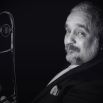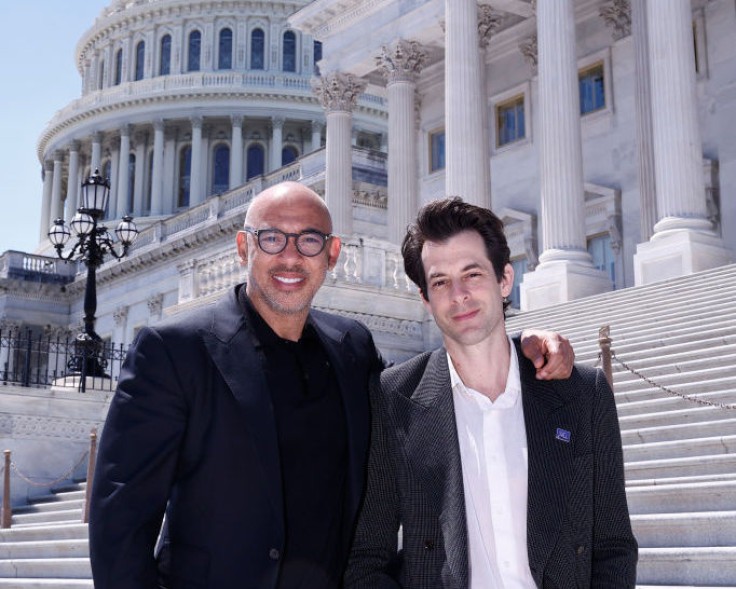
The 2024 Grammy Awards ended a little over two months ago, but the Recording Academy is year-round operation when it comes to championing artists. So, as soon as those statuettes were handed out in February, Recording Academy CEO Harvey Mason Jr. turned his attention to an equally important awards ceremony: the Grammys on the Hill Awards in Washington, D.C., held April 30, which honored Sheryl Crow and Senators Amy Klobuchar and John Cornyn.
Grammys on the Hill is the Academy's annual tentpole event, bringing together congressional leaders and music-makers to recognize those leading the fight for creators' rights. And this year, for the first time in its 22-year-history, Grammys on the Hill expanded beyond its usual two days. May 1 was Grammys on the Hill Advocacy Day, when Mason and artists like Patti Austin, Lauren Daigle, J. Ivy, and Mark Ronson met with members of Congress and the Biden administration in D.C., and on May 3, the Grammys on the Hill Future Forum was held with the Human Artistry CampAIgn to explore the impact of artificial intelligence on the music community.
At both the White House and on Capitol Hill, conversations focused not just on how to protect creators from the risks of AI through No AI FRAUD Act, ELVIS Act, and the No FAKES Act, but on another hot industry topic: reforming the concert ticket marketplace to protect both artists and fans through legislation like the Fans First Act and the TICKET Act. It's a lot to unpack, but if there's anyone better to process it all with Music Times, it's Mason himself.
Speaking with us from his Studio City office, the Recording Academy CEO, music producer, and songwriter reflects about what Grammys on the Hill accomplished last week, what needs to be done in the future, how AI can be used for good as a creative tool, and why regular folks shouldn't "have to work for months" to save up "for a darn concert ticket."
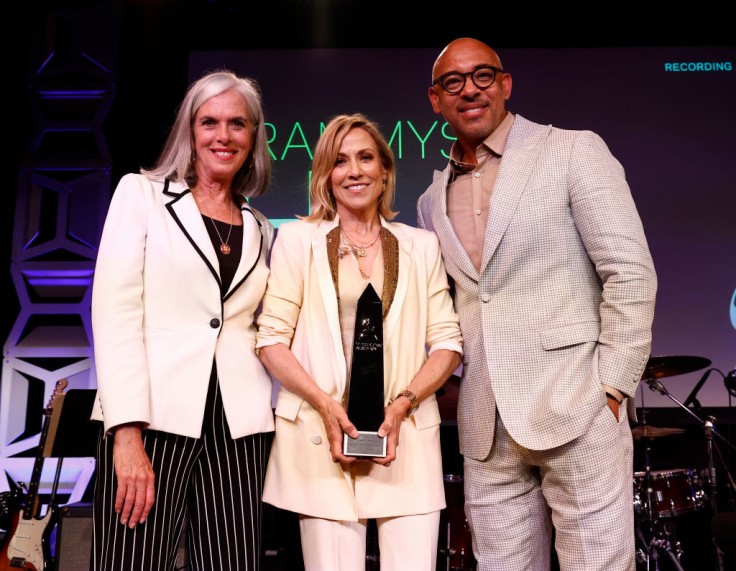
MUSIC TIMES: You were just in D.C. with Grammys on the Hill. Tell me what that was like.
HARVEY MASON JR: We started on the Hill, which was amazing. At the Capitol Building, meeting with lawmakers, that was spectacular. It just felt really good to be in a position where we're really talking to people that make a difference. We advocate all the time on all of our social media platforms and at the Academy level, and we host events and we gather for roundtables and we do summits, but being in the halls of the Capitol, putting our fists down on the desks of people who really vote to make change and impact the future of our community, felt like we were absolutely accomplishing great things. So, that was a great start to the day. We then went to the White House and spent some time there. It's really, really exciting to be recognized and acknowledged and heard, to the extent where we're walking the halls of the Oval Office and parts of the White House that everyone doesn't get a chance to wander into. It was a really productive and exciting, fulfilling.
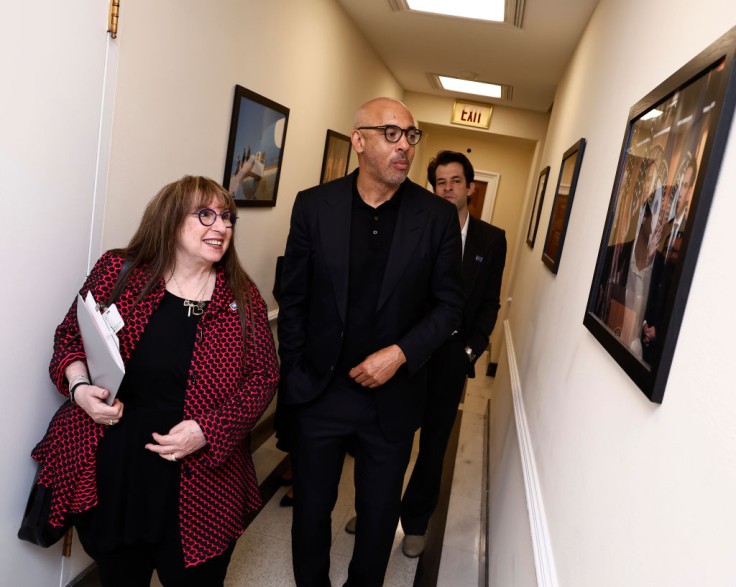
Everyone is worried about AI right now and how it could affect all of our jobs, and art in general, in the future. What are the biggest threats that AI poses to the music industry? What are your chief concerns?
That's a long answer! In a nutshell, the acts in the legislation that we're trying to get passed, or get sponsored and then ultimately passed, protect creators and their ability to control their image, their name, their voice, their performances. ... We want to make sure that a singer's voice is under the control of the artist, whether or not that artist chooses to utilize AI. And AI should be their choice. Whether or not they want to negotiate a fair right is their choice. They want to make sure they have credit, they want to have remuneration, they want approval rights. So, that's the legislation we're looking for. We're not trying to ban AI. We're not trying to say AI is the devil. We're basically saying we need to have some protections, because left unchecked, the fear could be — and I'm not saying that this is going to happen — but the fear for some could be that AI could replace a lot of the creators. A lot of the people who are writing songs, a lot of the people who are singing, that are writing lyrics, these are all things that can be done by AI. And I know you could say the same for the banking industry or medical industry or other industries, and I agree with that; there's going to be disruption across many different parts of our society. But when it comes to art and music and creativity for us at the Academy, we believe that human creativity needs to be preserved at all costs. We believe that AI absolutely will play a part in the future of music and creativity, and it should, because it's a technological advancement that'll allow us to do more and be more creative and do more cool things. We're just of the belief that there needs to be some understanding, some guardrails, some protections in place, before we're totally comfortable with it.
Have you witnessed any examples of things starting get out of control, something that made you realize the Academy needs to act now?
Yes. We've seen songs released under artists' names that the artists had nothing to do with, created in their likeness and using the sound of their voice and the style of performing, all done without the artist's acknowledgement and without them approving it. And [the AI version] could be singing lyrics that the artist doesn't stand by. It could be doing styles of music that are disingenuous to the artist's brand or something that they've established. So, there's a lot of opportunity for bad actors to utilize this technology in a way that is not equitable to the creative community. In the same breath, I also have to say that there are a lot of opportunities for creative people, people that are pushing the envelope and doing cool new art, to use this technology to make something that is exciting and something we've never heard before, something that's next-level.
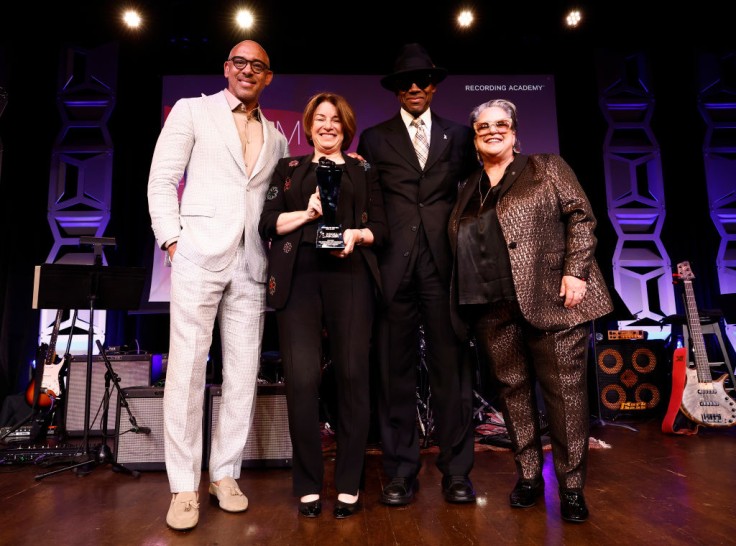
Last year I interviewed Peter Gabriel, who's obviously always at the forefront of art and tech, and he had an "if you can't beat 'em, join 'em" kind of attitude about AI. Basically, it's not going away, so let's figure out ways how to use it in cool ways, like you said. It seems you to agree with that, to some extent.
Well, I wouldn't say we should throw in the towel, though. We're not ever going to be able to beat it, and we're not looking to beat AI. We're looking to figure out how to make it work in conjunction with how we create and use it to advance, enhance, amplify what we do, not replace it. Much like Peter, I have also adopted new technologies: early drum machines, Pro Tools, synthesizers, samplers, sampling, streaming. These have all been things that have allowed more people to make cool music and more people to consume more art. AI will do much of the same. But much like the early days of sampling where you couldn't just take a record and rap over it without there being some understanding of what the economics behind that were, that's something that needs to be worked out. What are the copyright protections, when AI is going to be learning off of previously copyrighted works and replicating or duplicating or regurgitating information from those works into new works? What is the ownership model — who owns it? Is it copyrightable, even? Are there royalties due? These are all things that need to be worked out, similar to when there was illegal downloading, similar to when there was sampling, similar to all the other advancements in technology that we've gone through.
Change is always scary, and anytime there's disruption in an industry, people that have benefited or been successful in the earlier versions of that industry are going to be hesitant to accept what the future will look like. But throughout musical history, technology has advanced or moved the business and the creativity forward. ... You think about even the electric guitar, at one point people were like, "The electric guitar should not be used!" It has happened throughout time. The question is going to be, "Is this [AI] more extreme or more concerning than some of the other ones?" And I don't know. We could debate that. But the issue at play here is, is the next generation of consumers going to be listening to music that is created by humans, or is it going to be created in a new way that's collaborative with humans and technology together? Or is it going to be the completely drastic example, which is people are going to just type, "Make me a song that sounds like such-and-such," and a song — or worse yet, a thousand songs — get spit out? And then that dilutes what comes out and ultimately reaches the consumer. Those are all the questions that we have to grapple with.
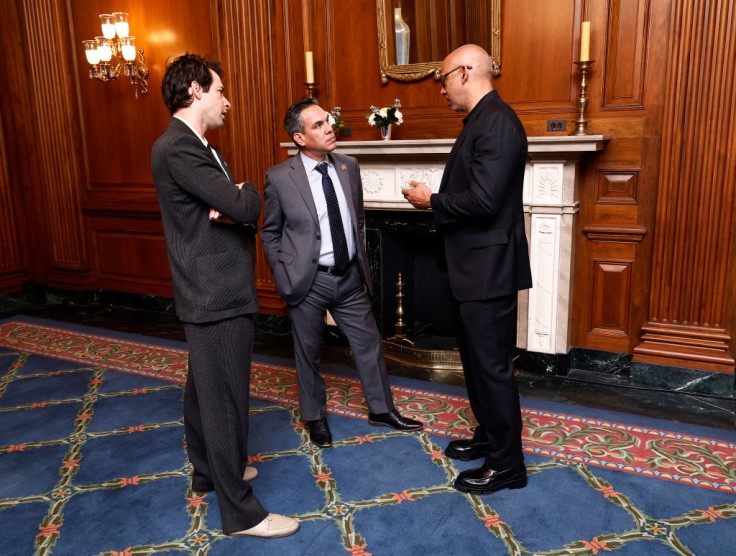
Have you ever asked AI to make a song that sounds like one of your songs, to see what would happen?
Yes, and it's interesting how quickly parts of the song you're referencing or the style of music that you're referencing starts coming back in new AI generative works. ... Like, I've gone through my whole library and pulled up songs that sound like lots of my songs. Sometimes I'll just type in, "Make a song that sounds like an Underdog production," because that was my production company. We had a very specific sound. And it will create music that sounds like it could have been produced by the Underdogs.
That sounds worrisome. But what are some of the specific cool ways AI could be utilized an as artistic tool?
Well, if you think about sampling — to use that same example — you had an original existing record, and you used it in a way that had never been done before. You used it in a way that no one thought of before. I'm imagining with AI, we're going to be able to create unique chord progressions, strange song structures, sounds, and sonics that haven't been created before, mashups of different genres that haven't been imagined before. And then on the lyric side, when writing songs, sometimes you want more input. You need more information to help inspire you or trigger something or to give you some motivation. Entering things into AI and having it give you a paragraph about a subject, you might read that and get inspired. That sort of impetus or iterative creativity could be assisted by AI, and I think that's really interesting. And then finally, there's using AI and voice-modeling technology or voice-creating technology to make new sounds, new artists, new versions of songs already created by artists. If you were any random artist that wanted to sing in a different language, you could have your music instantly performed in a hundred different languages in five seconds, all sounding like you, all with the perfect accent, and then market that music to all those different parts of the world. And that also goes for legacy artists who have passed away and their estates are looking to find ways to continue the creative output of that artist — if you could do it tastefully and in a way that feels respectful, and is approved and monetized, then it could be a really cool way to hear some more great music from the artists that we love.
Or maybe if there was an incomplete song by a deceased artist, it could be finished this way. That'd be pretty cool.
Oh, it's happening.
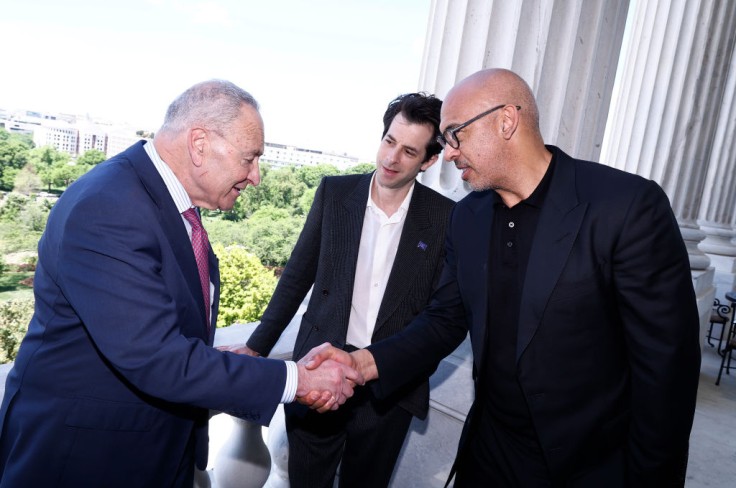
Another issue that Grammys on the Hill focused on was ticketing reform. There are multiple issues here: the junk fees and extra fees, high prices in general, problems buying tickets online, and scalping thing. What are you and the Recording Academy doing to address all these ticket-buying headaches?
We're doing a lot, and part of being on the Hill was to advocate for those issues. One of the things we're talking about is trying to find co-sponsors for bipartisan acts that we believe can solve some of these issues. One of them is called Fans First Act. It's comprehensive. It's across so many different areas of the ticket marketplace and talks about protecting not just the fans and the consumers, but also the artists and the small businesses and some of the venues. We're trying to get people to support that and pass the TICKET Act because that's a big part of what we believe will start to solve and fix some of the problems. Just being on the Hill and working with members of Congress to get that going would really, really mean a lot for I think what needs to be done around ticketing.
It's interesting that problems with ticketing have been in the headline so much lately, probably because of high-profile artists like Taylor Swift and the Cure's Robert Smith speaking out. But this is not a new problem. Pearl Jam literally 30 years ago this month went to Congress. Now, three decades later, the situation seems even worse.
Yeah. I've got to tell you, everywhere we went on the Hill, people were aware of it. I've never really met with as many members of Congress that there was such a united call for change. ... Every one of them knew about the ticket issues. Every single one of them was like, "Yeah, we've got to get this worked out." Most of them were all saying, "We had a subcommittee. I was on a subcommittee about this. We're going to get this sorted out." So, I'm pretty confident that even though it started 30 years ago, that this is going to be something that gets addressed in the near future.
Why do you think it's coming to a head now? Is it because of those big artists speaking out?
It's a really good question. I don't know the answer as to why it's becoming more of a thing. I like to think maybe because it's something that we've absolutely been active in championing at the Academy. We're 24,000 members and we also represent hundreds of thousands of music people across the country and around the world, and we've jumped up and down about this, that this needs to be addressed and it needs to be paid attention to. Yes, it might be because of some of the high-visibility artists out there talking about it. But also, on the positive side, think that it's the excitement and the appetite for live music. It's always been exciting to go to a concert, but coming out of COVID, there was an extra bit of energy and enthusiasm for taking in a live concert and having that human interaction with your favorite artists. So, maybe the perfect storm of all those things is going to come together to create the change that we need.
Tickets used to be like $20...
Now it's $2,000!
Yes, and even club shows aren't that cheap anymore. Enjoying live music shouldn't just be a luxury for the privileged.
Yes, we were doing some remodeling at my house and the plumber who was working on the pipes, he found out that I worked in the music business and then found out I worked at the Academy. He is like, "Man, it's so great to meet you. My daughter loves music. She's been trying to get these tickets for two weeks. And I had to tell her we just couldn't afford it." And this plumber told me, "My daughter doesn't know that I've been saving up for two months, and I'm going to surprise my daughter with these tickets." This guy was doing plumbing work, saving money for two months so his daughter could go to a darn concert. And it just broke my heart. It inspires me and motivates me to try and find a solution, because that is not the way it's supposed to be. ... No one should have to work for months for a darn concert ticket.
Are you at all surprised that — given everything obviously going on in the world and in the country right now, in the middle of an election year as well — that people in D.C., from both parties, would be so interested in these issues? It's great that they do, but I'd almost expect them to be like, "Who cares about your tickets and AI stuff? Go away!" But you're getting the opposite reaction.
I'm not surprised, but I'm very thankful and appreciative. But I think it speaks to the influence and the ability for culture to make an impact, And politicians understand that having culture support you, if you're a member of Congress or running for an office, is meaningful. But also, less cynically than that, most of the people we met with are just music fans. They love music and understand the power of music. Our work with the United Nations, our work with the State Department and exporting our music and using music as a diplomatic tool around the world, is something that means something to a lot of people in our country, not from just our general society, but also our leadership. They know what our music and our art means. So, protecting it and making sure that it's a fair place for people to come in and create and make a business out of and make a living from is one of the things that I think our country is special about our country.
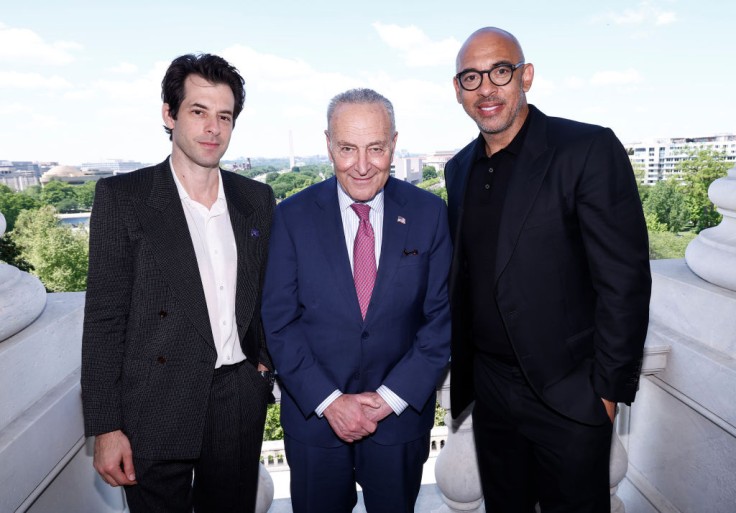
That's actually an interesting point you made about making a living. There was a time when it was quite a doable to be a middle-class musician. You might not be Taylor Swift or the Rolling Stones or Beyoncé, you weren't playing stadiums or selling millions of records, but you could make a decent living from touring, gigging, and releasing music. It has become much harder to making a living as a musician unless you're an A-list superstar. Do you worry that the middle-class of the music business is being wiped out?
It's a big problem, for sure. The working-class musician is a lot of who we're talking about when we're dealing with these issues. Because something like AI may look like it affects the big artists, but it actually affects the whole ecosystem. Think about any big artist and how many people they employ that go on that tour. Think about the mixing engineer that does the record, or the roadie, all the different roles that are affected by the ripple effect of something happening even at the high end of our industry. So yes, we're concerned about all classes of musicians and music people, because we realize that what happens to the high-end artists has a massive impact on everybody that works with them and around them. It's really a trickle-down from the top, and also a bubble-up from the bottom. We have to take care of both.
For more info, go to GRAMMY.com
© 2026 MusicTimes.com All rights reserved. Do not reproduce without permission.
